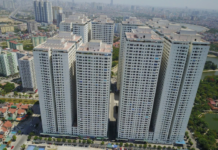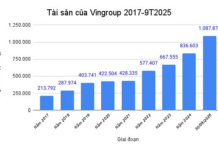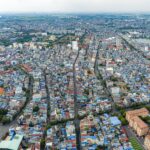The Ministry of Finance has submitted a draft of the Personal Income Tax Law (amended) to the Ministry of Justice for appraisal. The draft law proposes revisions to the provisions on personal allowances for taxpayers and dependents.
The drafting agency stated that there are also suggestions to base the personal allowance on the regional minimum wage. Specifically, the personal allowance in large cities and metropolitan areas should be higher than in rural and mountainous areas due to the higher cost of living.
However, the Ministry of Finance emphasized that the current Personal Income Tax Law stipulates a specific and uniform amount for personal allowances across the country, regardless of income levels, varying consumption needs, or geographical differences.

Opinions suggest that personal allowances should be based on regional minimum wages.
Regarding individuals working in challenging areas, the Personal Income Tax Law already exempts certain allowances, such as area allowances, attraction allowances, and relocation allowances, from taxable income. This provision aims to support employees and encourage individuals to work in these areas. Additionally, the law provides tax reductions for individuals facing difficulties due to natural disasters, fires, accidents, or serious illnesses.
The draft law proposes granting the Government the authority to determine the personal allowance amount to ensure flexibility and adaptability to the country’s socio-economic development in each period.
According to the current Personal Income Tax Law, individuals can deduct social insurance, health insurance, unemployment insurance, and occupational liability insurance for certain mandatory-insurance industries. They can also deduct personal allowances, charitable contributions, and stipulated allowances. The remaining amount is then subject to tax.
In this latest draft, the Ministry of Finance proposes adding other specific deductions to salary income before tax calculation. Some opinions suggest that it is necessary to study and allow taxpayers to deduct certain expenses, such as medical and educational expenses, within a reasonable limit before tax calculation.
The drafting agency recommended that the Government stipulate these details to ensure flexibility and alignment with socio-economic conditions. “The scope and extent of deductible expenses must be carefully considered and calculated to achieve the intended objectives while maintaining the role of personal income tax as a tool for income regulation and redistribution in the economy,” emphasized the Ministry of Finance.
The Ministry of Finance presented the draft Personal Income Tax Law (amended) to the Government for submission to the 15th National Assembly at its 10th session (October 2025). The law is expected to take effect from July 1, 2026.
Currently, the personal allowance for taxpayers is VND 11 million/month, and the allowance for each dependent is VND 4.4 million/month. Recently, the Ministry of Finance submitted a draft resolution of the Standing Committee of the National Assembly on adjusting personal allowances for personal income tax calculation, applicable from the 2026 tax period.
The highest proposed personal allowance is VND 15.5 million/month for taxpayers and VND 6.2 million/month for each dependent. In the lower option, the allowance for taxpayers is VND 13.3 million/month, and VND 5.3 million/month for each dependent.
The Largest Ward in Hanoi to Become a New Urban Center
On the morning of August 12th, the Hong Ha Ward in Hanoi, Vietnam, held its First Delegate Congress. As the newest and most populous ward in the city, with the largest land area, Hong Ha is poised to become a pivotal hub for Hanoi’s urban development plans for the period between 2025 and 2030.
“Regional Tax Breaks: A Conversation with the Ministry of Finance on Exemptions for Hanoi and Ho Chi Minh City”
“The proposal to vary personal exemption amounts based on geographical regions stems from the acknowledgment of varying living standards across different areas of the country by the Ministry of Finance. This initiative aims to address the disparities and ensure a more equitable tax system for all citizens.”











































